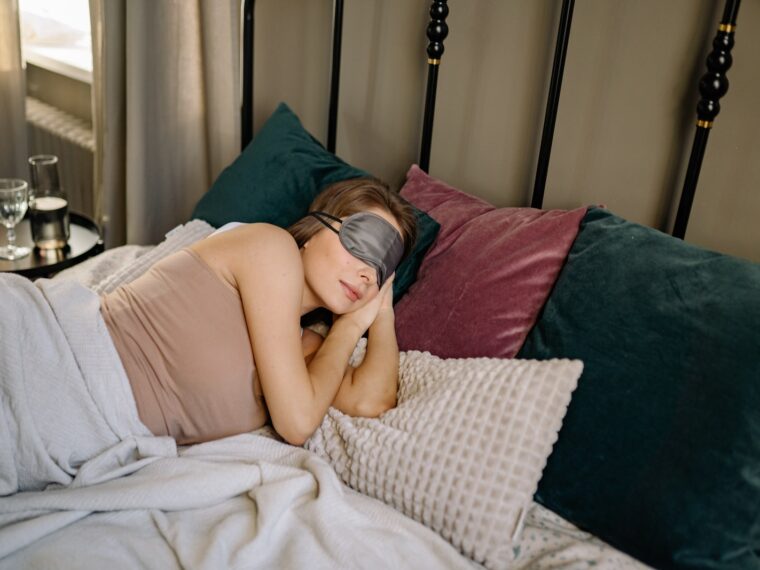Attaining enough deep and REM sleep is crucial for feeling refreshed in the morning, but getting enough of these deep restorative cycles depends on many factors including age and recent sleeping patterns, alcohol, medical conditions like sleep apnea.
There are ways to enhance your deep and REM sleep, such as limiting caffeine and alcohol before bed and sleeping on a soft surface. Passive body heating – such as taking a hot bath – may also aid deep sleep.
Sleep on a Soft Surface
Soft surfaces may help improve deep and REM sleep by keeping the spine in healthy neutral alignment as you rest. But before making this choice, experimentation should be undertaken to determine whether sleeping on such an approach really helps under your individual circumstances.
Deep sleep (NREM Stage 3) occurs first thing in the night and is highly restorative. At this stage, your mind slows down and settles into an even rhythm that’s difficult to disturb; thus enabling it to be restful and restore itself fully. During this period, waking you up becomes very difficult indeed!
Increased total hours of shut-eye is the key to deeper sleep. To do so, adopt evidence-based strategies like setting an appropriate bedtime schedule, creating an enjoyable bedroom environment and forgoing electronics before bed.
Avoid Caffeine and Alcohol Before Bed
Many people turn to alcohol at night as an aid for sleeping, which can quickly turn into an unhealthy cycle of caffeine consumption throughout the day and alcohol ingestion at night – eventually leading to poorer quality sleep and leading to serious health complications.
Alcohol can act as a central nervous system depressant and block essential REM sleep for maintaining mental wellbeing, leading to reduced energy, concentration difficulties, memory issues and depression.
Caffeine and nicotine can both interfere with sleep. People who regularly drink caffeine and alcohol before bedtime should try limiting their consumption at least several hours prior to sleep time to decrease any adverse side effects and make insomnia symptoms worse. This advice applies especially for those suffering from insomnia who struggle to get adequate restful restful restful restful restful restful restful restful restful restful sleep.
Set a Regular Bedtime Routine
Establishing and following a bedtime routine can “train” your body to anticipate sleep more easily, helping it sleep quicker. This is particularly crucial for adults who rely on getting adequate amounts of high-quality restful rest to function optimally.
By adhering to a regular sleep schedule, it can help improve your REM cycle and leave you feeling refreshed for the day ahead. It is also essential that high intensity exercises or physical activities be avoided shortly before bedtime in order to protect your REM cycle and allow your body to rest easily during restful REM sleep cycles. To maintain optimal results from this method of improving restful REM sleep cycles.
Try to go to bed and wake up at the same time every night, setting an alarm, to help reinforce your body’s natural sleep-wake cycle and achieve deeper, more restful slumber. Additionally, using sound machines or listening to relaxing music may aid relaxation – white noise, pink noise or brown noise audio engineered to interact with brain waves can produce soothing sounds for deep sleep.
Avoid Electronics Before Bed
Deep sleep and REM (rapid eye movement) sleep are essential for emotional and mental wellbeing, yet many individuals fail to get enough of either stage of restful slumber. If this applies to you, there are simple solutions you can make that can improve restfulness and help you drift off faster.
One of the best things you can do to enhance your sleep is avoiding electronics in the hours before going to bed. Blue light emitted by electronics can disrupt melatonin production and reduce time spent in REM sleep. If using your phone before sleeping, try switching it on “do not disturb” mode to reduce notifications or avoid interruptions from notifications and interruptions from other apps; creating a consistent bedtime routine and limiting electronic device time will have tremendously positive results on sleep quality.
Exercise Regularly
Though cardio and sports tend to top our lists for exercise, any form of moderate physical activity – including walking, yoga, tai chi and qigong – may help promote better sleep. You should experiment with various times and routines until you find what best works for you.
An aerobic session at moderate intensity can reduce anxiety in insomniacs and drastically decreases their time to sleep, increasing deep restful REM and decreasing wakeful periods during the night.
Exercise regularly has another advantage for improving sleep: raising body core temperature signals to the brain it’s time for bedtime, leading to improved quality sleep for many patients after regular workouts. Running, lifting weights or other forms of muscle-strengthening activities all can contribute to better restful night’s rest if done regularly.
Avoid Stress
Stressful events, such as menopause or natural aging can alter your sleep cycle and can contribute to fatigue; managing your daily routine may help relieve this impact on restful slumber. If you consistently wake up feeling unrefreshed even after getting the recommended amount of restful zzz’s then there may be medical condition or sleep disorder contributing to this feeling of malaise.
Deep sleep is a restorative part of the sleeping cycle that helps your body heal itself by producing growth hormones associated with cell repair and healing. At this stage, growth hormones may even be secreted that will promote healing processes within cells.
REM sleep occurs at the final part of a typical sleep cycle and during dream time. Researchers believe it plays an essential role in learning new information as well as maintaining emotional equilibrium. At this stage, your brain activity resembles when awake – thus leading to confusional arousals like sleepwalking and night terrors.




